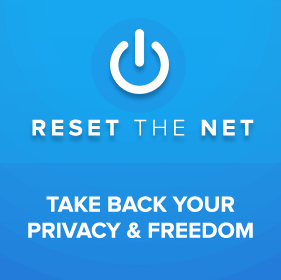 Working for a company that produces an information security product, I always assumed the United States conducted some level of surveillance and spying going on the internet. Nevertheless, PRISM still felt like a slap in the face. Assuming the government has betrayed you is one thing, seeing documents showing how they're doing it is something else. My previous office worked on information fusion, and the state-of-the-art there pretty much stunk. I naively hoped that applied universally, but that appears incorrect. I understand why the NSA wants to collect all this information, but I also understand the Fourth Amendment.
Working for a company that produces an information security product, I always assumed the United States conducted some level of surveillance and spying going on the internet. Nevertheless, PRISM still felt like a slap in the face. Assuming the government has betrayed you is one thing, seeing documents showing how they're doing it is something else. My previous office worked on information fusion, and the state-of-the-art there pretty much stunk. I naively hoped that applied universally, but that appears incorrect. I understand why the NSA wants to collect all this information, but I also understand the Fourth Amendment.Writing this post has been on my todo list for a few months now, the anniversary of the leaks being a convenient forcing function. In another month comes another significant anniversary: the 4th of July. Have you considered what sort of effect NSA-like surveillance would have had on the American Revolution? We now put the Founding Fathers on pedestals and consider them inspired men, but at the time they were traitors to England. Although we may romanticize the origins of our nation to some extent, I feel it reasonable to assume that a surveillance state would have squashed it. Look at how China has handled Tiananmen Square, and that was 25 years ago.
These leaks will forever be associated with Edward Snowden, so a discussion of one must involve the other. He accurately predicted the government's attempt at character assassination in his initial interview. At least one of my coworkers instantly condemned Snowden's leak and called him "a tool." I regularly listen to TWiT, and Leo Laporte almost as quickly labeled Snowden as a hero. At his talk at RSA earlier this year, Richard Clarke labeled Snowden as a traitor and said the United States should prosecute him as such. My opinion of Snowden trended toward positive, although it swayed significantly depending on with whom I had most recently spoke.
What would you do in Snowden's shoes? In his recent NBC interview he claims to have raised the issues internally, although the NSA denies this. Have you ever worked anywhere that your ideas would get patiently listened to and then the only response would be a nice pat on the head? Can you see that being the case at the NSA, a government organization? If he tried to raise the issue internally (like I suspect many have), he obviously did not get enough response. If he did not raise the issue internally, perhaps he though he might get "disappeared" to Gitmo. Maybe he thought he might get droned. The post-9/11 rules for how the government treats those it does not like seem very undefined. The Patriot Act, Obama's inaction, and his own experience as a government contractor had cost him his faith in the system.
One objection to Snowden's behavior during the first couple of weeks consisted of his somewhat strange escape route. To complain about NSA surveillance and then go to a country that obviously had it significantly worse seemed hypocritical. To go from there to KGB-led Russia made little sense as well. His interview throwing softball questions to Putin did not help. I do not have all the answers here, but I know that if I really wanted and expected change, I needed to stay in a place where I could act. That meant Snowden had to stay out of range of United States authorities. A safe bet that our two biggest frenemies could keep him out of jail, provided he applied a little leverage. Maybe that leverage consisted of not airing their dirty laundry, or sharing one or two country-specific NSA secrets. I admit the evasion route still has questionable parts, but it at least seems feasible.
Thank you for reading through my thoughts on Snowden & the NSA leaks. I still do not obsess about it, but felt the anniversary deserved more than a passing note. I think Snowden did something incredibly brave and that history books will describe him as a hero. In our fear after 9/11, the pendulum of freedom vs. security swung dramatically toward security. It's time it swung back to freedom.
DISCLAIMER: This post reflects my views and opinions only. Any comments made on this website, by myself or by third parties, do not necessarily reflect views or opinions of my employer, religion, family, or any other organization to which I belong.
